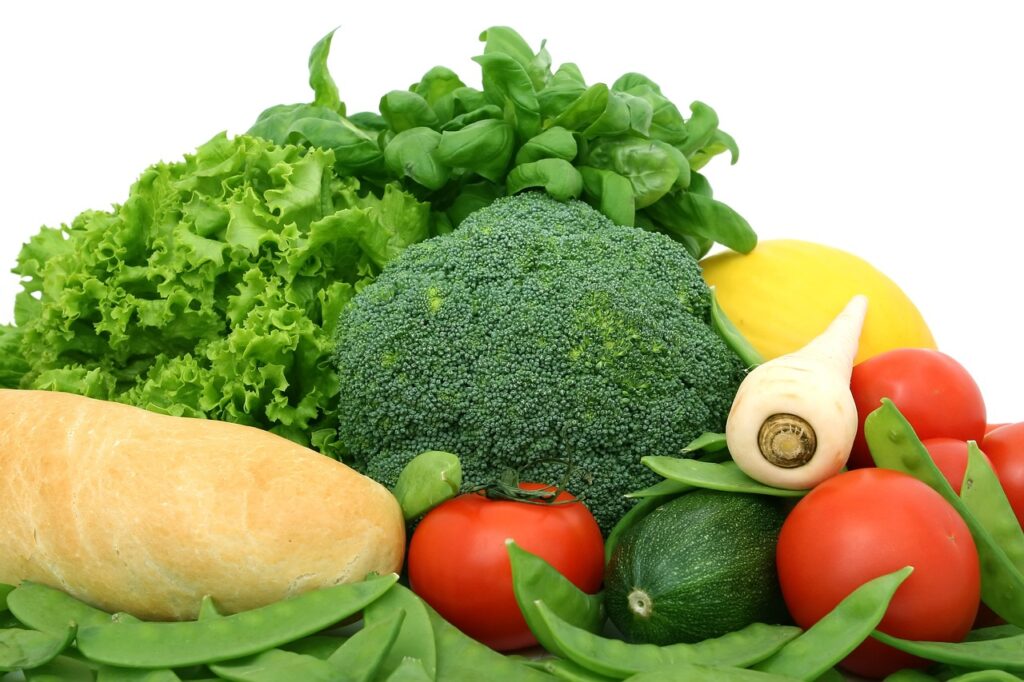Introduction
In recent years, there has been a growing interest in plant-based diets and their potential health benefits. A plant-based diet is one that focuses on consuming foods derived from plants, such as fruits, vegetables, whole grains, and legumes while minimizing or eliminating animal products. In this blog post, we’ll explore the benefits of a plant-based diet for overall health and well-being.

Benefits of a Plant-Based Diet
- Reduced Risk of Chronic Diseases: Plant-based diets have been shown to reduce the risk of chronic diseases, such as heart disease, stroke, and diabetes. This is due to the high levels of fiber, vitamins, and minerals found in plant-based foods.
- Weight Management: Plant-based diets tend to be high in fiber and low in saturated fat, making them an effective way to manage weight.
- Improved Gut Health: Plant-based diets are rich in prebiotic fiber, which helps to feed the good bacteria in the gut, promoting a healthy gut microbiome.
- Lower Blood Pressure: Plant-based diets have been shown to lower blood pressure and reduce the risk of cardiovascular disease.
- Improved Mental Health: Plant-based diets have been linked to improved mental health, including reduced symptoms of anxiety and depression.
- Increased Energy: Plant-based diets tend to be high in complex carbohydrates, which provide sustained energy and reduce the risk of energy crashes.
- Healthier Skin: Plant-based diets are rich in antioxidants and other nutrients that promote healthy skin and reduce the signs of aging.
Key Components of a Plant-Based Diet
- Fruits: Aim for a variety of colorful fruits, including berries, citrus fruits, and apples
- Vegetables: Include a range of dark leafy greens, cruciferous vegetables, and other colorful vegetables in your diet.
- Whole Grains: Choose whole grains, such as brown rice, quinoa, and whole wheat bread, instead of refined grains.
- Legumes: Include a variety of legumes, such as beans, lentils, and chickpeas, in your diet.
- Nuts and Seeds: Enjoy nuts and seeds, such as almonds, walnuts, and chia seeds, as a healthy source of protein and healthy fats.
Tips for Transitioning to a Plant-Based Diet
- Start Slow: Begin by incorporating one or two plant-based meals into your diet each day and gradually increase the number of plant-based meals over time.
- . Seek Out New Recipes: Explore new plant-based recipes and cookbooks to find healthy and delicious optio
- Stock Your Pantry: Get rid of animal-based products and stock your pantry with plant-based staples, such as beans, grains, and nuts.
- Connect with Others: Join online plant-based communities or connect with friends and family who follow a plant-based diet for support and inspiration

Conclusion
A plant-based diet offers numerous health benefits, from reducing the risk of chronic diseases to improving mental health and increasing energy. By incorporating more plant-based meals into your diet and making a few simple changes to your lifestyle, you can experience the benefits of a plant-based diet for yourself. Remember to start slow, seek out new recipes, and connect with others for support and inspiration. With a little creativity and commitment, you can thrive on a plant-based diet and enjoy optimal health and well-being.
